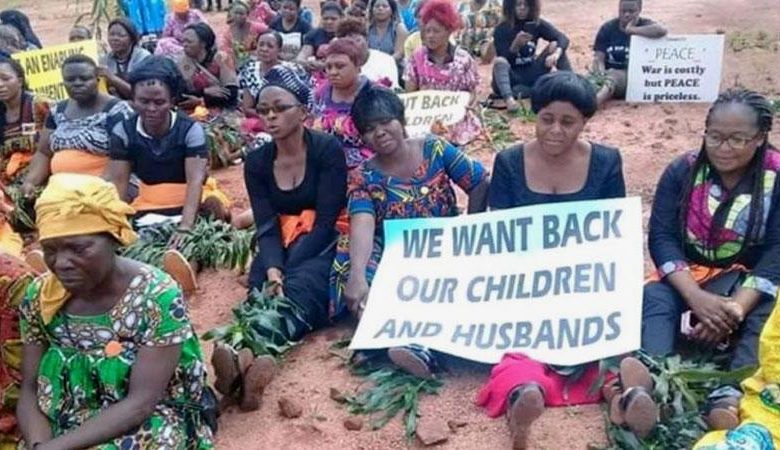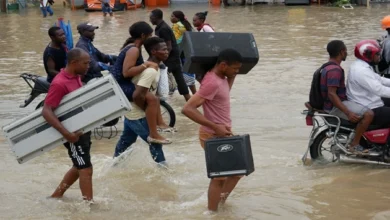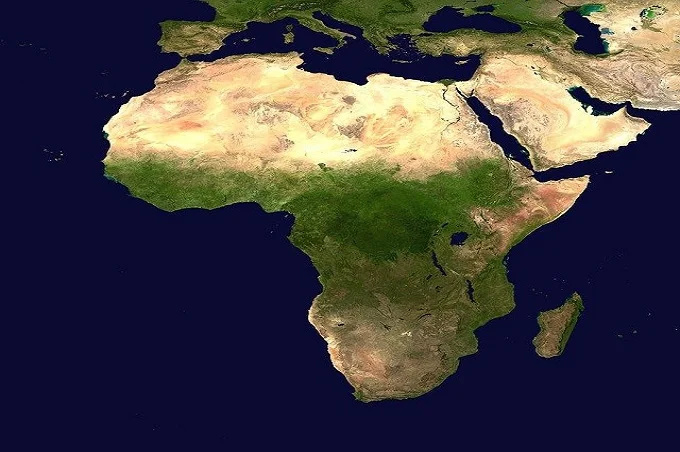In Cameroon, from separatist crisis to kidnapping industry?

A priest, kidnapped on August 29 by separatists in southwestern Cameroon, was released after three days of captivity. In the crisis which shakes the English-speaking regions, many prelates are victims of such acts. For some observers, far from ideological claims, a kidnapping industry has settled in this part of the country.
Bad times for the religious in the violent separatist crisis which shakes the English-speaking regions of Cameroon! Bishop Julius Agbortoko, vicar general of the parish of Mamfe, in the separatist southwest of Cameroon, was kidnapped on Sunday, August 29, before being released three days later by “young people who identified themselves as separatist fighters,” who demanded a ransom of 20 million CFA francs.
“After three days of captivity, we are happy to announce that our brother, priest, Mgr Julius Agbortoko, has been released without any ransom being paid,” wrote the diocese of Mamfe in this press release.
However, in its press release, the diocese gives no indication of the reasons why the kidnappers finally released the prelate without the payment of any ransom.
The Church trapped in violence
For more than four years, the southwestern and northwestern regions of Cameroon have been in the grip of a violent separatist crisis. In this battle, which gets bogged down over time, the Church (Catholic or Protestant) has often borne the brunt of abuses for supposed proximity with one side or the other of the belligerents.
The latest illustration is the shooting on Sunday, August 22, in a Presbyterian church in the locality of Bali (north-west separatist region). An armed group broke in during the celebration of worship before opening fire on the faithful. According to local sources, the death toll is one dead and many injured, including the pastor.
In 2018, many priests were abducted, and at least three were killed. These included Father Alexandre Sob Nougi, murdered on July 20, 2018, in Buea, in the southwest; Gerard Anjiangwe, a seminarian in the diocese of Bamenda, in the north-west, on October 4 of the same year. In November, a Kenyan missionary died in Mamfe.
Cardinal Christian Tumi, the late archbishop emeritus of Douala – the initiator of the general conference of anglophones, a meeting that was intended to discuss solutions to end the crisis – had also been abducted twice: first in November 2020, then in late January 2021. For his former close collaborator and current spokesperson of the General Conference of Anglophones, these acts should not distract the Church from its mission.
“Catholics apply a social doctrine of the Church, consisting of being close to the population and telling the truth (…) Before his death, Cardinal Tumi conducted many operations in these regions to ease tensions. This worked in some cases (…) The Church must always keep its role as moralizer: not to be partisan and to tell the truth in all circumstances,”
Organized crime
In this part of Cameroon, where the majority of the country’s English speakers live, the army and separatist groups clash almost daily, gripping civilians, collateral victims of abuses on both sides.
According to the latest report by the NGO Human Rights Watch (HRW) published in February 2021, this conflict has already left more than 3,500 dead (civilians and soldiers) and pushed more than 700,000 people to abandon their homes. Thousands of men and women need assistance.
In addition to religious figures, the populations of the two regions in crisis face the industry of kidnapping. Students, officials, traditional leaders, and other businessmen are very often kidnapped in exchange for money. Which, in Elie Smith’s opinion, dilutes the separatist cause.
“The movement is no longer focused on ideological demands, it has become a fertile ground for pure banditry and settling of scores. This is why there are recurring kidnappings. It is not only the priests [who are victims]. At the start of this conflict, when there was really an ideological anchor, there were very few kidnappings orchestrated by the separatists, and they had the massive support of the population. Unfortunately, this is no longer the case,” he laments.
As a reminder, at the end of 2017, the separatists from the English-speaking regions of the North-West and South-West took up arms against the government of Yaoundé to demand the creation of an independent state. Tensions began in November 2016 in the form of corporatist demands: teachers deplored the appointment of French speakers in English-speaking regions, and jurists disapproved of the supremacy of Roman law to the detriment of Anglo-Saxon Common Law.




